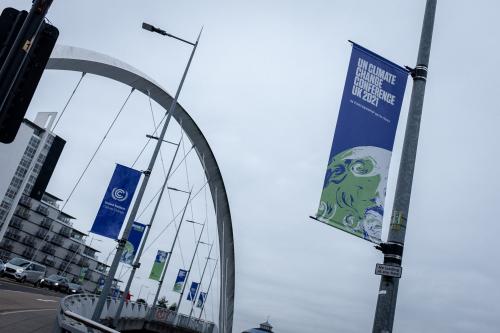Editor’s Note: Marvin Kalb writes about his time as a CBS correspondent covering the April 22, 1971 Senate Foreign Relations Committee hearing in which John Kerry gave testimony regarding the Vietnam War. This feature was adapted from Kalb’s book The Road to War: Presidential Commitments, Honored and Betrayed.
During the Vietnam War, there were many memorable hearings at the Senate Foreign Relations Committee, but none resonated with the raw power and eloquence of John Kerry’s on April 22, 1971. It was a time of crisis in America—a war seemingly without end for a goal still without clarity, in a country split not only on the war but also on a host of emotional political, cultural and social issues.
When Kerry entered room 4221 of what is now called the Dirksen Senate Office Building, its impressive walls covered with maps and books and with nineteen senators seated behind a huge U-shaped table, he did more than add instant credibility to the dovish cry for Congress finally to do something about ending the war, even going so far as to advocate cutting off funding; he personalized the war that for so many others still seemed a puzzling, costly embarrassment in an unfamiliar corner of the world.
Kerry was a 1966 Yale graduate who had volunteered for duty in Vietnam, where he served honorably, winning two medals for courage and three Purple Hearts. “I believed very strongly in the code of service to one’s country,” he said. By that time, 56,193 Americans had died in and around Vietnam, and campuses were ablaze with antiwar rallies. Many students escaped military service by joining the National Guard or fleeing to Canada.
Dressed in green army fatigues, with four rows of ribbons over his left pocket, the twenty-seven-year-old survivor of dangerous Swift Boat missions leveled a blistering attack on American policy in Vietnam, his New England accent adding a dimension of authenticity to the sharpness of his critique. When he finished his testimony an hour later, he had become, in the words of one supporter, an “instant celebrity . . . with major national recognition.”
Speaking on behalf of more than a hundred veterans jammed into the Senate chamber and more than a thousand others camped outside to demonstrate against the war, Kerry demanded an “immediate withdrawal from South Vietnam.” He came to Congress, and not the president, he said, because “this body can be responsive to the will of the people, and . . . the will of the people says that we should be out of Vietnam now.”
If Kerry had simply expressed this demand, and not amplified it with reports of American atrocities, he likely would have avoided the devastating criticism that hounded him throughout his political career—criticism that eventually morphed into charges of treason and treachery, deception and lies, cowardice and even more lies, undercutting his presidential drive in 2004.


Commentary
When Kerry Stormed D.C.
February 25, 2013